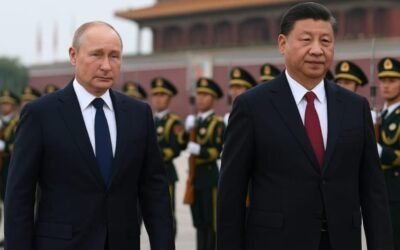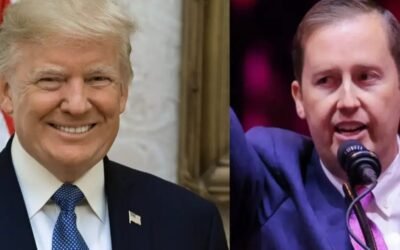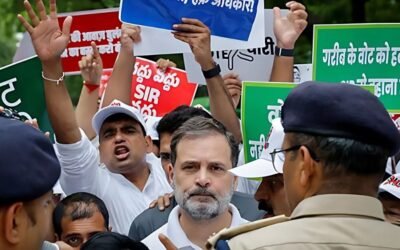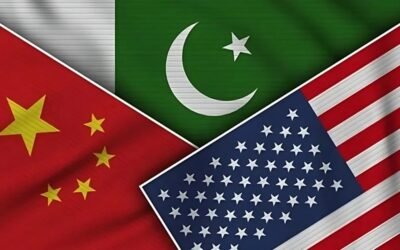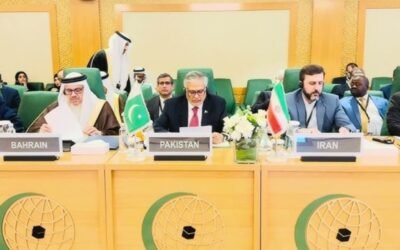On the surface, Donald Trump’s claim that he “personally brokered” a ceasefire between India and Pakistan during the May 2025 conflict may sound like another episode in his theatrical diplomacy. But look closer—and especially from Islamabad—and you’ll see something more profound unfolding. His repeated assertions have unintentionally granted Pakistan a rare narrative advantage on the global stage. For India, however, this recurring claim is not just awkward; it’s diplomatically inconvenient.
Trump’s Ceasefire Habit: A Global Pattern
This isn’t the first time Trump has claimed the role of peacemaker—and it won’t be the last. From Ukraine to Gaza, his recurring formula is simple but effective: declare he could—or did—end wars. Whether the claim holds water becomes secondary. The real game lies in who embraces the narrative and who rejects it.
In the May 2025 South Asia flare-up, Trump has mentioned his “ceasefire role” multiple times, from his campaign rallies to interviews. Each time, he reinforces the image of a man who can “make deals,” casting himself as the ultimate intermediary in global crises. Ceasefire, to Trump, is not just a diplomatic term—it’s a political brand.

Pakistan: Repositioning Through Narrative
For Pakistan, this recurring claim couldn’t have come at a better time. Long burdened by accusations of being the instigator in South Asia’s tense military dance, Islamabad found a new angle to reshape global perception. Prime Minister Shehbaz Sharif’s government didn’t just quietly appreciate Trump’s remarks—it acted. It publicly acknowledged Trump’s “efforts” and even floated his name for a Nobel Peace Prize.
You May Like To Read: Pakistan’s New Consulate in Kandahar
Was it symbolic? Yes. Was it clever? Absolutely.
In global diplomacy, perception often outpaces reality. Trump’s version of events, once echoed by Islamabad, subtly repositioned Pakistan—not as the troublemaker, but as the party that listened to reason, de-escalated under advice, and welcomed international mediation. This shift aligns with Pakistan’s long-standing desire to frame itself as a responsible stakeholder in regional peace.
It also feeds a powerful domestic sentiment: that Pakistan was not cornered into truce, but diplomatically courted by a superpower figure. In a region where narrative matters as much as military might, this is no small win.
India’s Doctrine of Denial: A PR Problem
India’s official line is as expected: the ceasefire was a bilateral military understanding, no third party involved. No surprise there—New Delhi has, for decades, clung fiercely to a “no third-party mediation” policy, especially on Kashmir and military escalations.
But here’s where the optics get tricky.
The more Trump repeats the story, the more the international press picks it up. And each time, India is forced into a reactive posture—denying something that’s already seeped into global discourse. While Pakistan smiles diplomatically, India finds itself explaining, rebutting, and pushing back against a claim that—while unprovable—refuses to die.
This asymmetry creates a stark visual: Pakistan embracing the ceasefire narrative, India resisting it. One appears open to peace, the other rigid. In an age where media snapshots matter more than diplomatic cables, that contrast plays out in headlines—and in hearts and minds.
Trump’s “Ceasefire Card”: A Tool for Disruption
Whether it’s Gaza, Ukraine, or Kashmir, Trump’s use of the word “ceasefire” has become a tactical instrument—disruptive, strategic, and self-serving. In one sentence, he injects himself into conflicts, creates a media storm, and garners attention. And while many governments roll their eyes, some—like Pakistan—play along, wisely.
Let’s be honest: Trump didn’t sit between Rawalpindi and New Delhi with a treaty in hand. But in the arena of perception, he doesn’t need to. His claim, repeated often enough, becomes part of the record—especially if one party validates it.
And that’s what Pakistan did. Not to flatter Trump, but to use the moment. Smartly.
You May Like To Read: Pakistan, Israel, and the Politics of Recognition
In Conclusion: Optics Matter—And Pakistan Played It Right
In this age of information warfare and digital diplomacy, narratives shape nations. Trump’s repeated “ceasefire” boasts may not have moved armies, but they’ve certainly moved perceptions. And Pakistan, often fighting to reclaim its image, wisely leaned into the moment.
India, meanwhile, is stuck. Denial only prolongs the news cycle. Silence concedes the narrative. Either way, it’s a diplomatic bind.
In Trump’s global chessboard of “peace deals,” the word ceasefire has become his queen—fluid, dramatic, and capable of flipping entire narratives. For Pakistan, it became a surprise opening. For India, a position it neither expected—nor prepared to counter.


